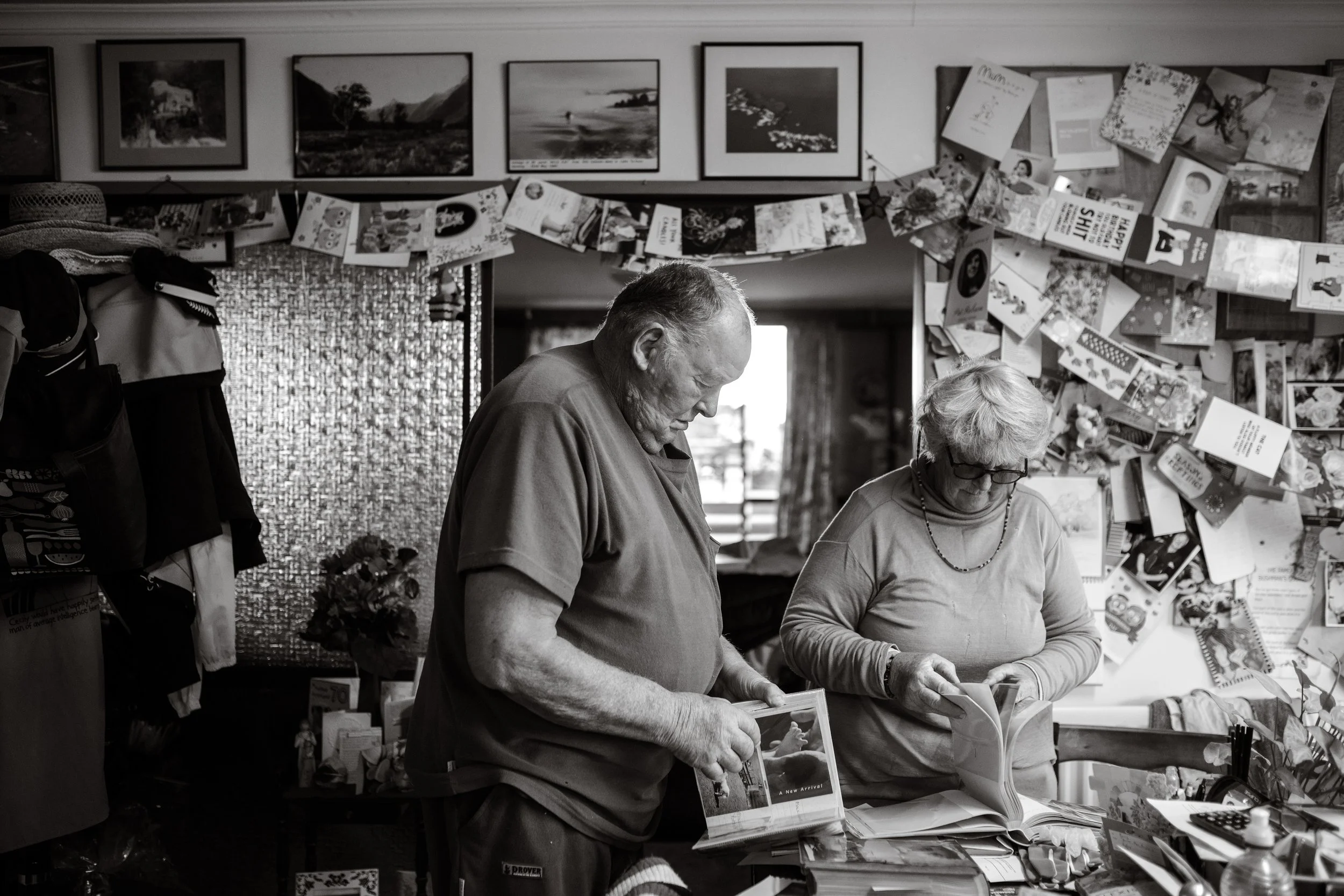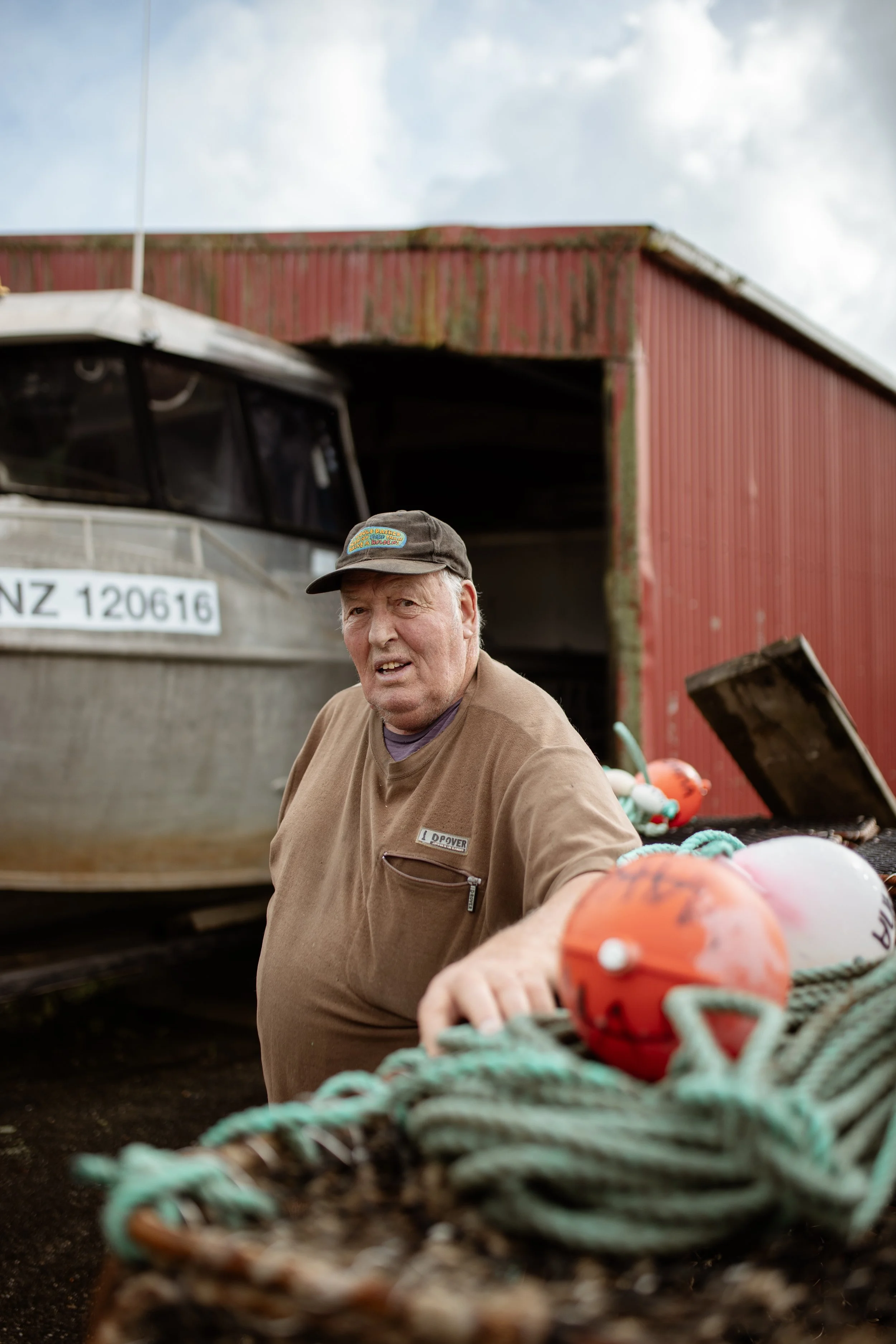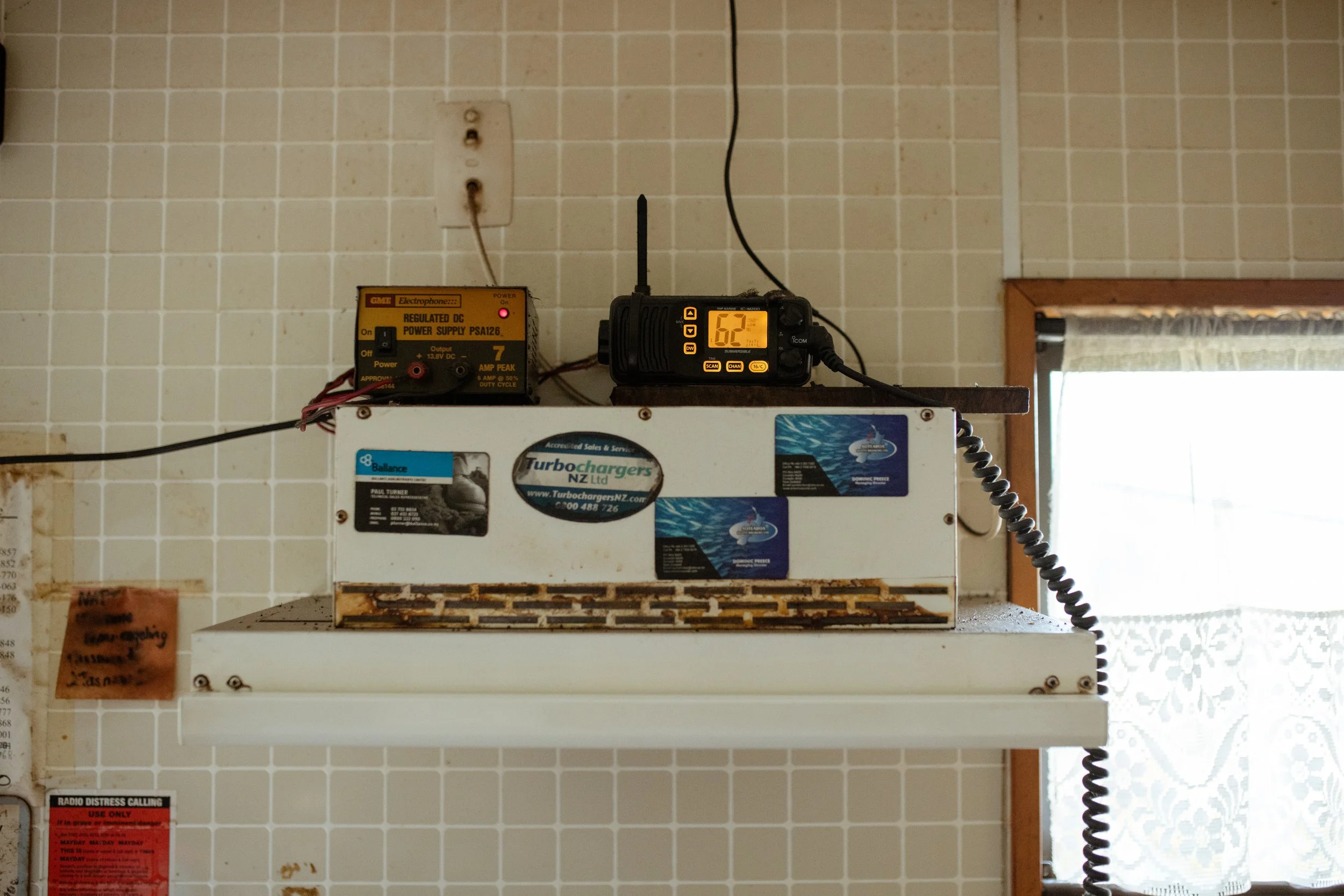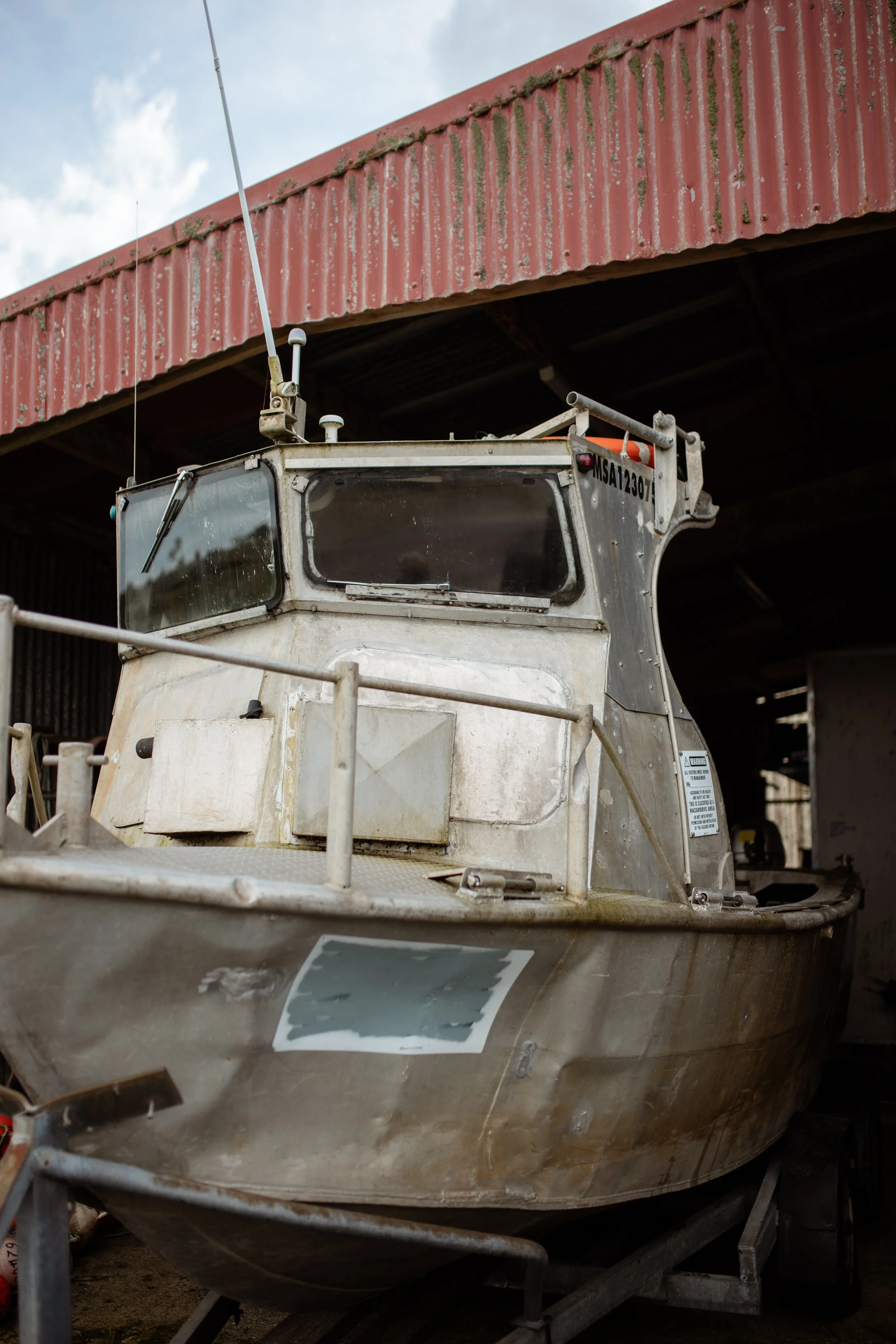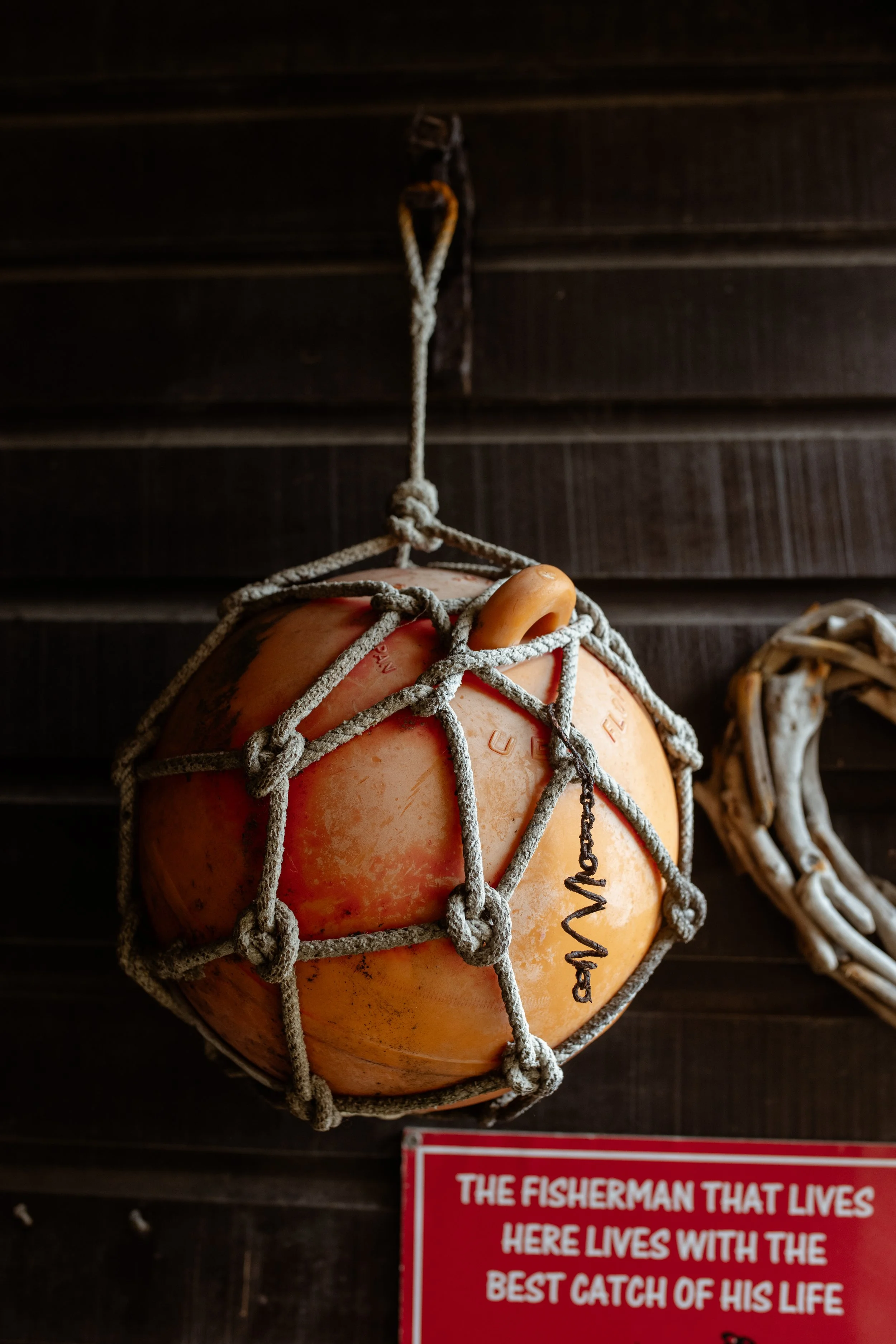KERRY EGGELING
Writer: Carly Thomas
Photography & Videography: Francine Boer
Producer: Francine Boer
Kerry Eggeling
Born in 1947
Haast, West Coast, Te Waipounamu
Kerry has lived in his Haast house with his wife Fay for 40 years. It was built with money earned from Kerry selling deer he’d captured in the wild, bush clad hills beyond the house. Hills he knows, hills he knows like the back of his hand.
He was a young buck back then with a passion for hunting. It was a way to cull an unwanted pest, put some food on the table and to get into the thick of the land. When he hunted in those days, Kerry would be barefoot.
“We never ever owned shoes until we went to high school so we were always barefoot. I always had a set of sandshoes tucked down inside my lambie so when I shot a deer and had to carry it I could put my sand shoes on to bring it out. As far as stalking goes you can’t get quieter than your bare feet.”
The Eggeling’s current, modern house stands on the footprint of the original homestead where Kerry was raised, so he has never really left. “I love this land and I’ve lived in Haast my whole life”. Back in the day, when the man, who is now broad chested and tall, was a young lad, the house had high ceilings, a porch, a heap of character but no electricity. Those were the days of candles, kerosene lamps, a long drop loo and the most important part of the house was the wood burner in the kitchen.
“That was how we cooked and we had no way of preserving food, there was no such thing as a refrigerator or anything, so we would salt the meat and smoke it in the smoke house. There were six of us kids, me, my three brothers and two sisters. We had pigs, sheep and cattle and would kill mutton and a cattle beast now and again. We used to go out in the bush and drop a big white pine tree, hollow it out with an adze and make a bath out of it that we’d put the brine in so we could pickle the meat. We sold meat as well as milking the cows and selling the milk to the district.”
Milking cows by hand was part of life in those early days and Kerry remembers his parents being pretty sharp about the speed at which he worked. “The separator had a bell on it and if you were going the right speed the bell would ring but if you were going a bit slow it wouldn’t ring properly. You’d hear a yell from out in the cow shed “speed up!””.
Kerry chuckles, he’s seated at the kitchen table which, as an echo to the years he lived in the old homestead, is where a lot of life happens in this house. The walls are filled with memories, old cherished photos, cards marking life’s milestones and on top of the stove - the essentials in any remote home - a two-way radio charging and a box of spark plugs.
“It’s been a good life. We worked hard and we are proud of all that we achieved. You’ve got to be self-sufficient and resilient out here and you have to love it.”
Kerry was particularly close with his brother Cliff and when Cliff bought his uncle’s farm, Kerry helped him. “So as well as working on the family farm I helped Cliff on his too. In time when Dad and Uncle Dick decided to sell I approached the Rural Bank for a loan and was laughed out of the office as I had no assets or history”. He came home pretty dejected but Kerry’s other brother, Peter stepped in and financed him onto the farm.
In their hay-day Kerry and Fay ran cows in the Okuru, Turnbull, Waiatoto, and Jackson Valleys, plus the windswept and wild Arawata beach. It was hard yakka and Kerry will tell you there is no money to be made farming in Haast and so side hustles were a must. Cliff led the way into the fishing industry when he got the opportunity to skipper a new 50 foot boat named Jeanette. “He jumped at the chance,” says Kerry, “he was a dedicated fisherman and he paid that boat off but came home to help me with all our major jobs on the farm as with the extra money we did a lot of development which brought our cow numbers up considerably”.
When news drifted their way that the government was going to put a moratorium on crayfish licences and the time to get onboard was right then, that’s exactly what they did. He and Fay headed out to sea and Kerry says that’s what kept them afloat.
Mako was their boat's name, initially funded through a loan from Wrightson’s. “We approached the manager for a $18,000 loan to build a 20 foot aluminium boat. The manager made us swear not to tell anyone that he had lent us money to buy a boat. We started fishing in about July 1977 and had the boat paid off by November much to the Managers dismay”.
“We would get up at 4am in the morning, go fishing and be back here by 10.30 to get on with the farm work for the rest of the day. The kids had to get themselves up and away to school on their own. My mum lived just down there so she’d keep a bit of an eye on them but we’d have a list of what they had to do.”
The sea gave the Eggelings a lot but it took from them too. Their son Raymond died in a boating accident in 2000. Kerry says the biggest stumbling block with running a fishing boat in Haast is the bar and it’s there, “ we lost our son”. Kerry looks down at his hands and shakes his head before looking up again.
“Just like on the land it could be rough out on the sea. He went out on a day when he shouldn’t have and it was a tragedy. It’s sad and it’s hard and we miss him dearly”.
Along with the rough, the sea also brought Kerry moments of great calm and contentment. Out there, on a good day, life could be “magical”.
“You’d see so much bird life, the big ones and the little ones and so many whales and different types of dolphins. The albatrosses and everything out there are just so special and I loved seeing the land from the sea too.”
And from the sky - another chapter in Kerry’s adventure-filled life was helicopters. Apart from the farm, helicopters gave Kerry his first job out of school. He had gone off to St Bede's College in Christchurch for his secondary schooling but his parents pulled him out when it became apparent he was going backwards. “Mum and dad reckoned I was only there to eat my play lunch. So I came home with no qualifications and what I have learnt, I have learnt from the university of life”.
Kerry went and worked for Graham Stewart, the first company in New Zealand to put procedures for hunting deer from helicopters in place. Fresh out of school at 16 years old and Kerry found himself hanging out of a chopper shooting deer, one of the pioneers to do such a thing.
“Graham Stewart was cleaning up the Waiatoto of deer so the grass could have a chance to grow again. I would venture to say I was one of the first 10 or 12 people to ever shoot a deer out of a helicopter. When the helicopters first started up there were virtually no Kiwi pilots so they were brought in from America. Some of them were bloody useless but there were one or two really good ones. We got 8000 deer out of the Waiatoto in one year.”
Kerry’s passion for hunting landed him his first job, it built him his first house and it also helped him to develop the farm once he had managed to buy it off his parents in the mid 1960s.
“At that stage the only cash I could earn was through hunting deer so therefore I spent a lot of time out in the early morning and late evening spot-lighting to try to get money.”
Kerry didn’t learn to fly a helicopter himself until the 90s. He says he couldn’t justify the cost while he was farming, “it was too bloody expensive and then I could least afford it after I sold the farm so, I stopped flying then”. But he absolutely loved it when he got up above the land he knew so well.
“I could muster the cows with the helicopter and it was magic. It’s an unbelievable feeling, I would feel elated, it’s euphoria. I’d hire the helicopter and I’d have two and a half hours of fuel and so I’d do what I could and come home again. I’d check all those valleys and see what the cows were doing and how they were. It was a great way of doing things.”
“In the roar I’d hire it to go hunting in little valleys and places that I had always wanted to go and shoot a deer. Places I’d seen while I was cruising around. I’d see a place and think there might be a big stag in there and so I’d land the helicopter, camp the night with a mate, who used to come with me, and see if we could get a trophy or two.
After the farm was sold in the mid 90s the Eggelings stayed put in their Haast home and Kerry and Fay now get to enjoy a quieter life. One that doesn’t involve 4am starts, horseback musters through swollen rivers, constantly watching the changeable clouds for possible sideways rain and the never-clocking-off aspect of farming and fishing.
What doesn’t Kerry miss?. “The phone ringing at 8 o'clock at night. The sun would still be shining but we’d be fast asleep in bed. It doesn’t get dark till 10.30 or 11 at night here in the mid summer, but when you’re working all day and every day you get bloody tired and we would go to bed really bloody early. “Oh what are you doing in bed you useless bugger,” I'd get over the phone and I’d say, “yeah join me in the morning mate!”.”
What does Kerry miss?, “getting up there in a helicopter, " he says wistfully, looking out the window. Kerry Eggeling’s life has been one lived on high but with feet - often bare - planted firmly on the West Coast ground. “I have never regretted anything about my life. No regrets at all, not a minute of it.”

